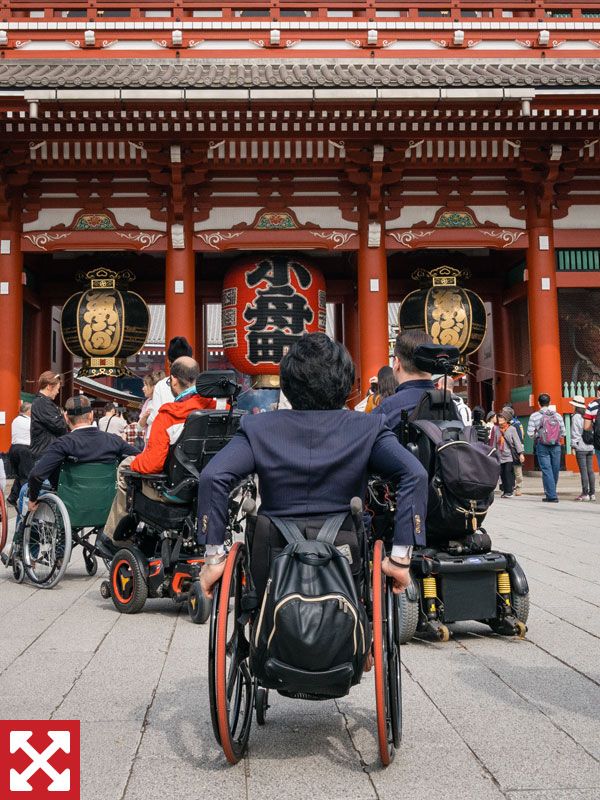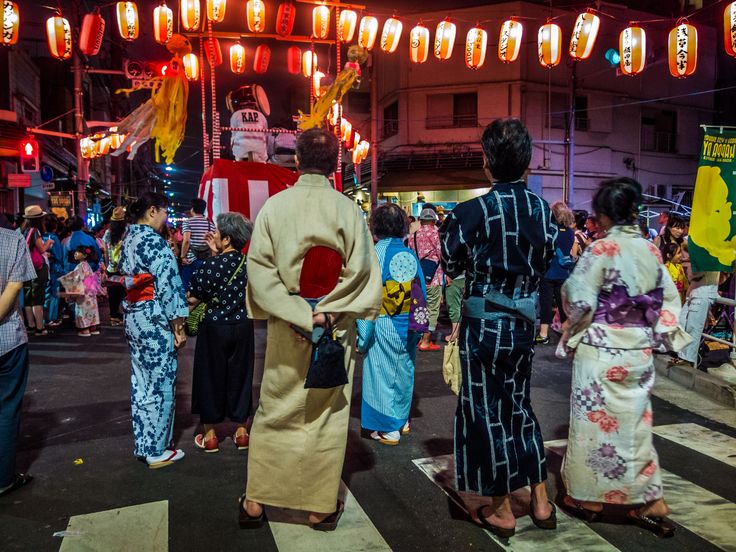Japan. The name itself conjures a potent and alluring fantasy. It’s a land of serene Shinto shrines and pulsating neon cityscapes, of disciplined martial artists and whimsical anime characters. It’s the home of sushi so fresh it melts in your mouth, bullet trains that defy the laws of punctuality, and a culture steeped in thousands of years of profound beauty and honor.
For many, the dream of living in Japan is a powerful one. You’ve seen the vlogs, scrolled through the impossibly perfect Instagram feeds, and perhaps even visited as a tourist, swept away by the polite service, the clean streets, and the sheer, breathtaking otherness of it all. You’ve decided you want more. You want to trade your tourist visa for a residence card and make this dream a reality.
This article is your bucket of ice-cold water.
It’s not here to destroy your dream, but to arm it with reality. Because living in Japan is a universe away from visiting it. The charming quirks that delight you on a two-week vacation can transform into soul-crushing frustrations over two years. The polite society that feels so safe can become an impenetrable wall of social isolation. “Hate” is a strong word, and you may not truly come to hate the country itself. But you will almost certainly, at times, hate the experience of living there. You will encounter moments of such profound frustration, loneliness, and cultural whiplash that you’ll question every decision that led you to that tiny, overpriced apartment in a suburb of Tokyo.
This is the unvarnished truth about the daily grind, the social friction, and the bureaucratic nightmares that await you beyond the cherry blossoms.
1. The Iron Cage of Work Culture: Say Goodbye to Work-Life Balance
If you are moving to Japan for a career, be prepared to fundamentally redefine your relationship with work. The Western concept of “work-life balance” is, in many traditional Japanese companies, a foreign and almost laughable idea. The Japanese work culture is built on a foundation of group harmony, dedication, and visible effort, which often translates into a brutal reality for employees, especially foreign ones.
The Tyranny of Unpaid Overtime (サービス残業 – Sabisu Zangyo)

Your contract might say your workday ends at 5:30 PM. This is a polite fiction. In reality, you are often expected to stay late, not necessarily because there is urgent work to be done, but to show your dedication. Leaving on time, especially before your superiors, can be seen as a lack of commitment. This unpaid overtime is so common it has its own name: sabisu zangyo, or “service overtime.” You are performing a service to the company by donating your personal time. Complaining about it is a surefire way to be labeled as selfish and not a team player. You will see colleagues slouched over their desks, seemingly asleep, just to avoid being the first to leave. This isn’t productivity; it’s performative suffering, and it’s exhausting.
The Nomikai: Mandatory Fun That Isn’t Fun

OLYMPUS DIGITAL CAMERA
The workday doesn’t end at the office. It extends to the nomikai, or company drinking parties. These are not optional social gatherings. They are a crucial, and often mandatory, part of the job. It’s where team bonding happens, where bosses might share crucial information, and where you are expected to pour drinks for your superiors and listen to them ramble. For a foreigner, this can be a minefield. You have to navigate complex seating arrangements, pouring etiquette, and the awkwardness of feigning enthusiasm for hours on end, all while your personal evening evaporates into a haze of cheap beer and cigarette smoke. Refusing to go marks you as an outsider, someone who is not part of the team.
The Illusion of Vacation
Japan offers a generous number of national holidays, but taking your personal paid leave is another matter entirely. There is an unspoken pressure not to use all your vacation days. Taking a long, two-week holiday is often unthinkable and may require a series of deep, apologetic bows to your entire department. You are expected to feel guilty for taking time off, as it burdens your colleagues. As a result, many workers let their vacation days expire, a sacrifice on the altar of the company.
This work culture is a leading cause of burnout and the infamous phenomenon of karoshi (過労死) – death from overwork. While you may not be in a situation that extreme, the constant pressure, the endless hours, and the sacrifice of your personal life will grind you down. You’ll find yourself missing the simple freedom of leaving work at 5 PM and having your evenings entirely to yourself.
2. The Social Wall: Forever the Outsider (外国人 – Gaijin)

One of the most painful paradoxes of living in Japan is that you can be surrounded by millions of people and still feel profoundly alone. Japanese society is famously polite, but this politeness often serves as a beautiful, impenetrable shield.
Honne and Tatemae: The Art of Never Saying What You Mean
In the West, communication tends to be direct. In Japan, it is an art of subtlety, inference, and masks. The concepts of honne (本音, one’s true feelings) and tatemae (建前, the public facade) govern nearly all social interactions. People will rarely say “no” directly. Instead, they’ll say, “That might be a little difficult” (ちょっと難しい – chotto muzukashii) or “I will consider it” (検討します – kentō shimasu), which are almost always polite ways of rejecting you.
For a foreigner, this is maddening. You are constantly left guessing. Did your friend really want to hang out? Did your boss actually like your proposal? This ambiguity seeps into everything, making it incredibly difficult to form genuine, deep connections. You will have many friendly acquaintances but may struggle for years to find a true friend with whom you can have an open, honest conversation. The constant need to decode social cues is mentally taxing.
The Unshakeable Gaijin Label
No matter how long you live in Japan, how fluently you speak the language, or how much you embrace the culture, you will almost always be seen as a gaijin—an outsider. This isn’t necessarily malicious, but it is pervasive and “othering.” You will be complimented on your chopstick skills for the thousandth time. You’ll be asked where you’re really from, even if you just said you’ve lived in Osaka for a decade. You are a novelty, a walking representative of your entire home country.
This perpetual otherness means you are never fully “in.” You are exempt from some social obligations, which can be a relief, but you are also excluded from the core of society. It creates a subtle but persistent barrier to true integration, a glass wall you can see through but never break.
3. The Bureaucratic Labyrinth: Welcome to the 1980s

Japan is a country of incredible technological advancement, yet its administrative systems seem to be willfully stuck in the Showa era. Prepare for a world ruled by paper, fax machines, and personal seals.
The Almighty Hanko
Your signature is largely worthless in Japan. The most important tool for official business is your hanko or inkan (印鑑), a personal stamp with your name carved into it. You will need one to open a bank account, sign a lease, accept a package, and conduct countless other official transactions. This isn’t just one stamp; you may need multiple for different purposes—a registered one for major contracts (jitsuin), one for banking (ginkō-in), and a simple one for daily use (mitome-in). The entire system is an analog nightmare in a digital world.
The Hell of City Hall and Banking
Any interaction with the government or a bank is an exercise in extreme patience. Expect to take a numbered ticket and wait. And wait. You will be faced with reams of paperwork, all in complex Japanese, that must be filled out perfectly. A tiny mistake can mean starting the entire process over.
Opening a bank account can be a multi-hour ordeal requiring your residence card, hanko, and a Japanese phone number (which you can’t get without a bank account, creating a classic catch-22). The banking hours are absurdly short, often closing at 3 PM, and online banking systems are frequently clunky, non-intuitive, and have limited English support. Forget the seamless digital banking experience you’re used to; here, simple transfers can feel like launching a rocket.
Fax machines are still shockingly prevalent in business and government. You will be asked to fax documents that could easily be emailed, a testament to a system that resists change with incredible force. This bureaucratic inertia is a constant source of frustration in daily life.
4. The Language Mountain: A Lifelong Climb
“Oh, you can get by with English in Tokyo.” This is one of the biggest lies told to aspiring expats. While you can certainly survive as a tourist with English, living in Japan without a strong command of the language is like trying to live your life with one arm tied behind your back.
The Japanese language is notoriously difficult for native English speakers. It has three separate writing systems—Hiragana, Katakana, and Kanji (with thousands of characters to memorize). The grammar is completely different, and the nuances of politeness levels (keigo) can take a lifetime to master.
Without the language, you are functionally illiterate and dependent. You can’t read your mail, understand your employment contract, argue a mistaken bill, or make a doctor’s appointment without assistance. You miss the jokes at the office, you can’t understand the nuance of conversations, and you are locked out of the true cultural life of the country.
The language barrier is the single greatest determinant of your quality of life in Japan. It is the key that unlocks everything: career advancement, deep friendships, and a genuine sense of belonging. Failing to climb this mountain—and it is a mountain—will relegate you to a shallow, frustrating existence in an English-speaking bubble.
5. The Cost of “Cozy”: Housing and Living Expenses
Japan has a reputation for being expensive, and in many ways, it lives up to it. While some things can be cheap (like a bowl of ramen), the major costs will squeeze you.
The “Rabbit Hutch” Apartment
Housing, especially in major cities, is notoriously small and expensive. Be prepared for apartments that would be considered a closet in many Western countries. Kitchens are often tiny, with a two-burner stove and no oven (a small microwave/convection oven combo is the norm). Closets are a luxury. Sound insulation can be paper-thin, meaning you’ll get intimately familiar with your neighbor’s daily habits.
The Upfront Cost Nightmare
Finding an apartment is not just about the first month’s rent. The initial move-in costs are astronomical. You will typically be expected to pay:
-
Shikikin (敷金): A security deposit, usually 1-2 months’ rent.
-
Reikin (礼金): “Key money” or “gift money,” a non-refundable gift to the landlord, usually 1-2 months’ rent. Yes, you are paying a massive, non-refundable fee just for the privilege of renting.
-
Guarantor Fee (保証会社 – Hoshō-gaisha): Since you are a foreigner, you will almost certainly need a guarantor company, which costs another 50-100% of one month’s rent.
-
Agency Fee, Lock-changing Fee, Insurance…
All told, moving into a new apartment can cost you 4-6 times the monthly rent upfront. It’s a huge financial barrier that makes moving difficult and costly.
6. The Weight of Conformity and Gender Inequality
Japanese society places an immense value on group harmony (wa, 和) and conformity. The nail that sticks up gets hammered down. For individualistic Westerners, this can feel suffocating. Expressing a strong, dissenting opinion is often frowned upon. There is a “right” way to do things, and deviation is not always welcome.
This pressure is particularly acute for women. Japan consistently ranks very low among developed nations in the World Economic Forum’s Global Gender Gap Report. While younger generations are pushing for change, traditional gender roles remain deeply entrenched. Women are often expected to leave the workforce after having children to become full-time homemakers. Those who try to juggle a career and family face significant hurdles and “maternity harassment” (matahara). For a foreign woman, navigating these expectations and the often male-dominated office environment can be a shocking and disillusioning experience.
Conclusion: The Dream vs. The Reality
So, will you truly hate living in Japan?
Perhaps not every day. You will still have moments of pure magic. You’ll be captivated by a festival in a small town, moved by the kindness of a stranger, and find joy in the simple perfection of a convenience store egg salad sandwich. Japan’s good qualities—its safety, its efficiency, its beauty, its incredible food—are all real.
But the dream you were sold is only half the story. The reality is a daily battle against forces you cannot see and rules you cannot understand. It’s the slow erosion of your patience in the face of illogical bureaucracy. It’s the deep ache of loneliness in a crowd. It’s the exhaustion of performing a role—the dedicated worker, the polite foreigner—day in and day out.
Living in Japan is not an escape into a fantasy world. It’s an exchange. You trade the familiar frustrations of your home country for a new, uniquely Japanese set of challenges. These challenges are not small quirks; they are fundamental aspects of the culture and system that can and will wear you down.
Before you pack your bags, you must ask yourself honestly: Are you resilient enough to be a perpetual outsider? Are you patient enough to navigate a system that defies logic? Are you willing to sacrifice your personal time and identity for your career? Are you prepared to feel lonely, frustrated, and misunderstood, possibly for years?

